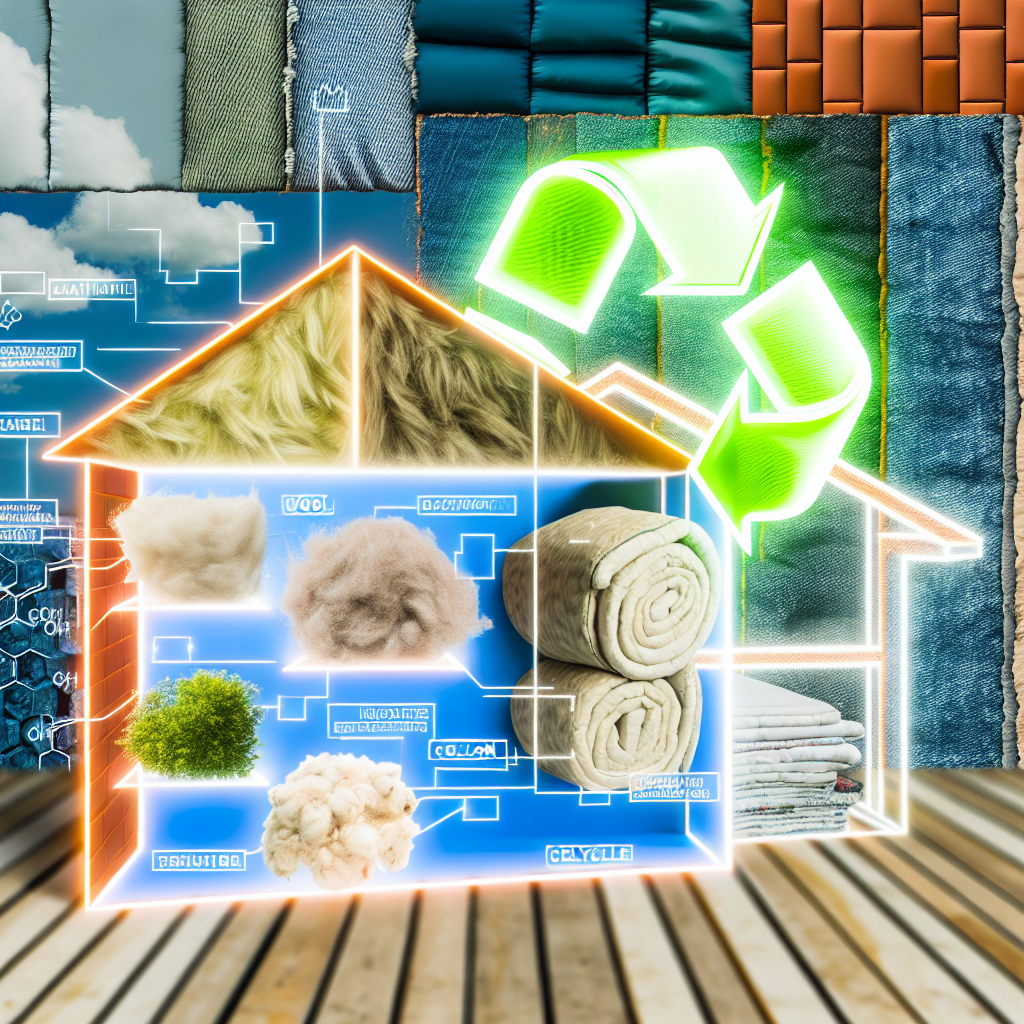
How to Choose Eco-Friendly Insulation Materials
How to Choose Eco-Friendly Insulation Materials
When it comes to building or renovating a home, insulation is a key factor in creating a comfortable and energy-efficient living space. However, traditional insulation materials can have negative impacts on the environment and your health. That's why many homeowners are now turning to eco-friendly insulation options. But with so many choices available, how do you know which ones are truly environmentally friendly? In this blog post, we will discuss the key factors to consider when choosing eco-friendly insulation materials for your home.
Understanding the Basics of Insulation Materials
Before we dive into the world of eco-friendly insulation, it's important to have a basic understanding of what insulation is and how it works. Insulation is a material that helps to reduce the transfer of heat between two surfaces. In a home, insulation is typically used to keep the indoor temperature consistent and reduce the need for heating and cooling, which in turn reduces energy consumption.
Avoid Materials That Contribute to Climate Change
One of the primary reasons for choosing eco-friendly insulation is to reduce the negative impact on the environment. That's why it's important to avoid materials that contribute to climate change. This includes materials such as expanded polystyrene (EPS) and polyurethane foam, which are derived from fossil fuels and emit harmful greenhouse gases during production. Instead, consider insulation materials made from more sustainable resources, like recycled denim, wool, or cork.
Look for Materials With High R-Values
R-Value is a measure of insulation's resistance to heat flow. The higher the R-Value, the more effective the insulation is. When choosing eco-friendly insulation, make sure to look for materials with high R-Values. This will not only make your home more energy-efficient, but it will also reduce your carbon footprint.
Consider Local and Renewable Materials
Another factor to consider when choosing eco-friendly insulation is the material's sourcing and production. Materials that are locally sourced and renewable can greatly reduce the environmental impact of insulation. For example, sheep's wool insulation is often locally sourced and is a renewable resource. It also has a low carbon footprint and is biodegradable, making it a great eco-friendly option. SubHeading6Title:Choose Non-Toxic and Chemical-Free Options SubHeading6Text:Traditional insulation materials often contain chemicals and toxins that can be harmful to both the environment and human health. To ensure you're choosing an eco-friendly option, look for insulation materials that are certified as non-toxic and chemical-free. Materials like cellulose, which is made from recycled newspaper, and cotton insulation are great alternatives that are both safe and environmentally friendly. SubHeading7Title:Consider the Long-Term Benefits and Cost Savings SubHeading7Text:While eco-friendly insulation materials may have a slightly higher upfront cost compared to traditional options, they often offer long-term benefits and cost savings. For example, materials like sheep's wool and cotton insulation have a longer lifespan than traditional insulation, meaning you won't have to replace it as frequently. Additionally, the energy savings from choosing a high-quality, eco-friendly insulation can result in lower utility bills over time. SubHeading8Title:Final Thoughts SubHeading8Text:Choosing eco-friendly insulation materials for your home is not only better for the environment, but it can also improve your home's energy efficiency and save you money in the long run. By understanding the basics of insulation, avoiding materials that contribute to climate change, and considering factors like R-Value and sustainability, you can make an informed decision on which insulation option is best for your home. Remember, every small step towards choosing eco-friendly options can make a big impact on our environment. So next time you're considering insulation for
Serving Utah with Pride
Kirkman Construction & Excavating LLC is proud to serve the communities of Utah, including Ogden, Layton, Kaysville, Pleasant View, Eden, Morgan, West Haven, and Hooper. Our local expertise and understanding of the area’s unique requirements allow us to provide services that are tailored to meet the needs of our clients. We are dedicated to contributing to the growth and development of these communities through our high-quality construction and excavation services.

Ready to start your next construction project?
Contact Kirkman Construction today for a free consultation. Whether you need a general contractor, landscaping, demolition, or any of our other expert services, we’re here to help you bring your vision to life in Northern Utah. Call us or fill out our online form to get started!








